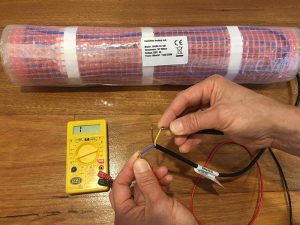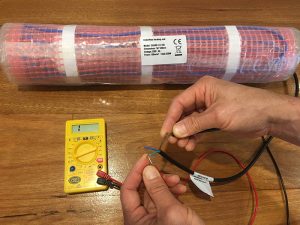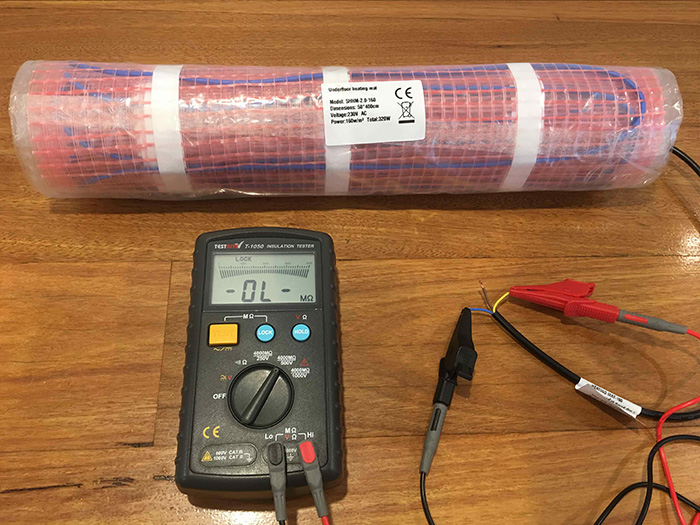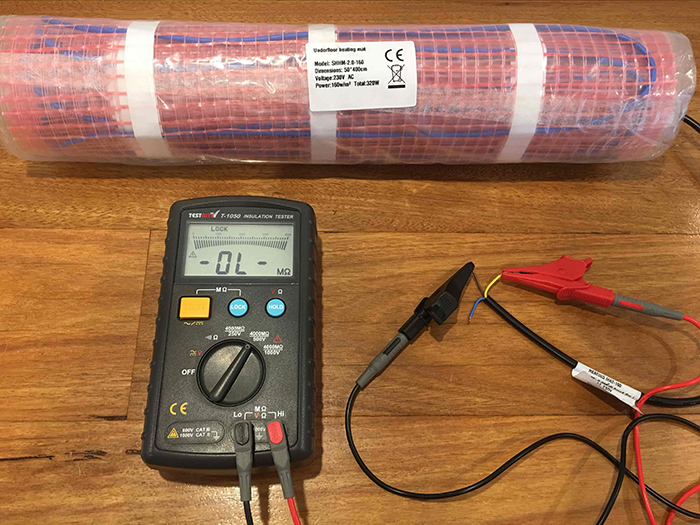Using a multimeter to test underfloor heating, can easily be done yourself… Here’s how.
Test 1: Resistance test between the active and neutral on the heating element.
By setting a multimeter to Ohms resistance, you will be able to tell if your heating element is in tact without a break in the heating element. A basic $10 multimeter purchased from Jaycar, Bunnings or your local hardware store will do the job nicely. With the cheaper multimeters you will need to set the resolution to the 2000 range and conduct the test. Firstly make sure that the heating element is not connected to any power source. Only conduct tests on the mat while it is totally isolated from the house power supply or any other power source. Then, connect either multimeter probe to the brown wire (active) on your heating and the other multimeter probe to the blue wire (neutral) and you should get a reading anywhere from 330 for a 1 Square metre heating mat to around 27 for a 12 square metre mat. The correct resistance floor heating mat should be printed on the label on the mat. Or just give us a buzz and we can advise you.

Test 2: Low voltage earth test (insulation floor heating test)
Again, only conduct tests on the mat while it is totally isolated from the house power supply or any other power source. By setting the multimeter to ohms in its finest resolution (around 2000k) place one probe on the earth wire (green) of the heating cable and the other probe on the brown wire (active) of the heating cable. There should be no reading at all (open circuit). Then, place one probe on the earth wire (green) of the heating cable and the other probe on the blue wire (neutral) of the heating cable. There should also be no reading at all (open circuit). It is important not to touch the actual wires during this test with any part of your body as the multimeter can actually pick up resistance through your body!


Test 3: Insulation test at 500 volts (Megger test)
This test cannot be done with a general multimeter and requires a special insulation tester or Megger tester. This test is best carried out by a technician or electrician as high voltage is used in this test. Basically it “pressure tests” the insulations within the heating cable and makes sure that it is safe and will not trip an RCD or earth leakage breaker once installed. At Customheat we conduct this test on every heating cable that we supply just before we pack it in the box so that we know 100% that we are supplying you a quality and fully tested product you will love.


Note to electricians: Do not test at over 500 volts as damage the the heating element may occur.

